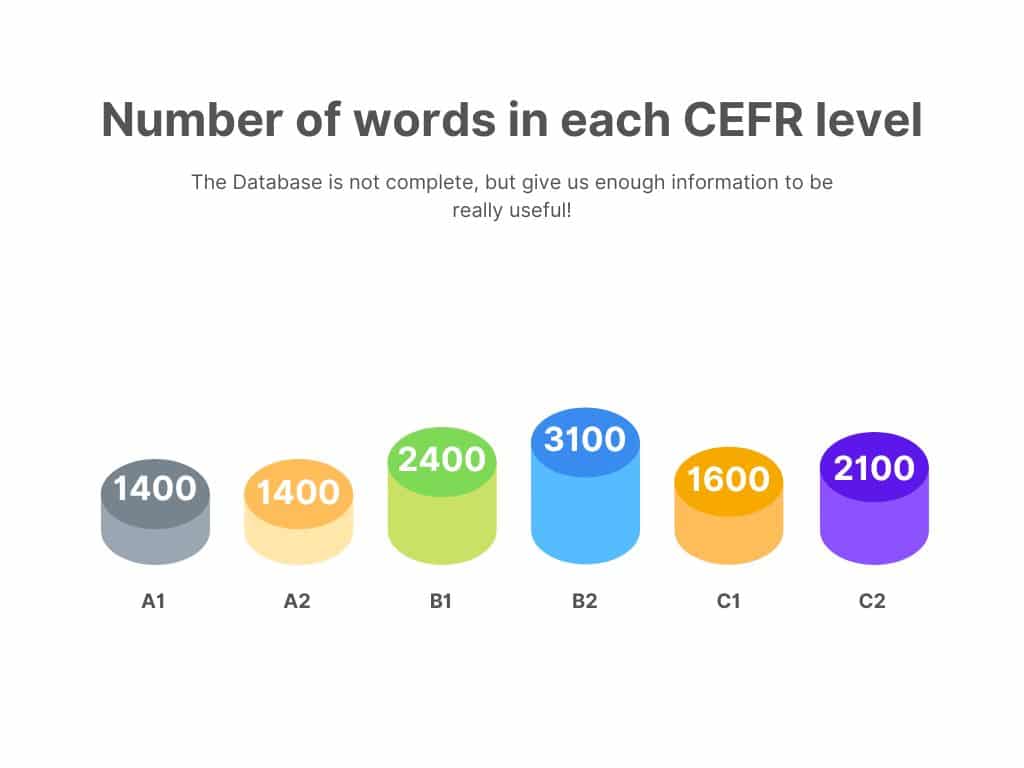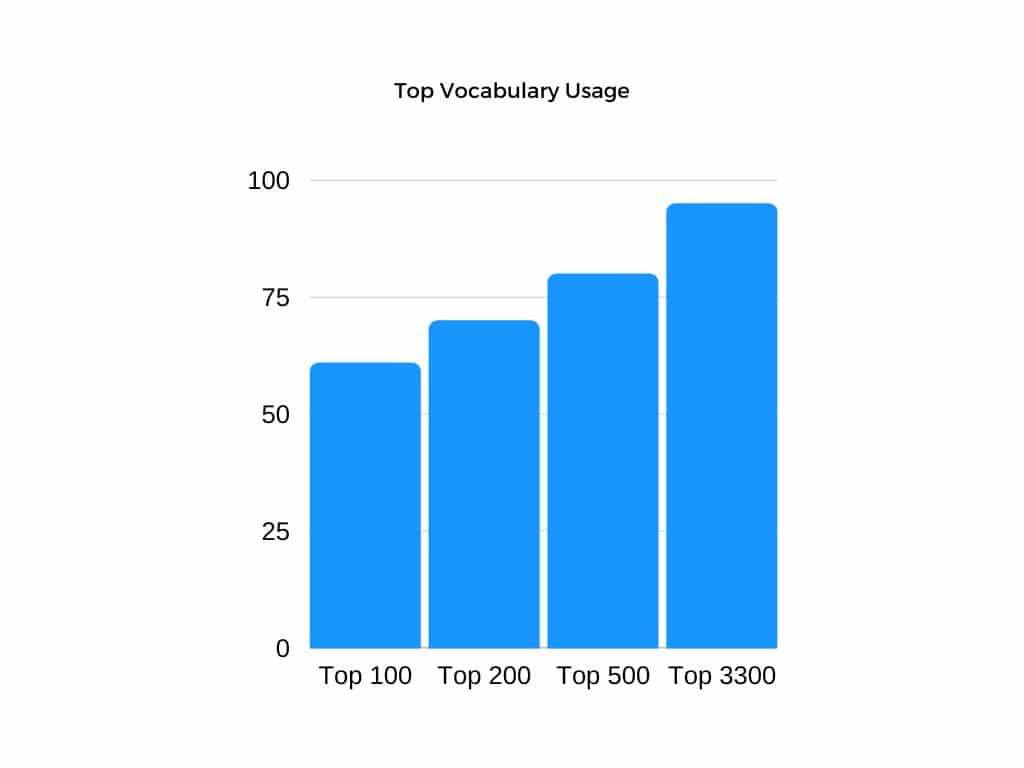According to the Oxford English Dictionary, an estimated 171,146 words are currently in use in the English language. Do you need to know all these words? Of course not. You don’t need to know all the words in a foreign language to use it effectively.
Generally, a native speaker knows 15,000 to 20,000 word families in their first language. A word family is a word with all its variations: do, did, done, doing.
So, do you need to learn 15,000 to 20,000 word families to speak fluently a language and communicate freely with others? Let’s explore this question from another angle to give a more complete answer.
We are all familiar with the different levels of English proficiency ranging from A1 up to C2 (The Common European Framework of Reference for Languages: CEFR). A1 is a complete beginner, and C2 is a master Jedi.
Cambridge University Press has a massive online database that provides information about different words and their CEFR level. If we do a basic search, we’ll come up with the following numbers:

Do you really need to memorise 1400 words to get from level A1 to A2?
Do you need to know over 8000 words to be considered level B2?
The answer to these questions is “NO”. There’s this phenomenon called “frequently used content”. Basically, some words, phrases, and grammar are used more often than others.
For example, “run” has 40 different meanings ranging from A1 up to C2 level.
At level A1, “run” means to move fast:
Example: He runs very fast.
At level B1, “run” means to organise or control something:
Example: She has been running her own restaurant for five years.
At level B2, “run” is used for transportation, and it means to be available to travel on:
Example: A bus runs three times a day into town.
At level C1, “run” means to publish something in a newspaper or magazine:
Example: All the papers are running this story on the front page.
At level C2, “run” means to move something along, over, or through something else:
Example: I love running my fingers through her hair.
By now, you should be asking yourself what the most common words in English are. We were granted access to the Corpus of Contemporary American English (COCA). It is probably the most accurate word frequency data for English and is based on one billion words.
In fact, the data is broken down into almost 200 different topics, but today, we’ll focus on the most general one.
The first question we need to answer is, “How many words do I need to know”? Luckily, we have an exact answer to this question:

Yes, this is correct!
- The top 100 words represent 61% of everything you say or hear in English.
- The top 200 words add up to 70%.
- The top 500 words add up to 80%
- The top 3300 words are 95% of everything you will say.
This means that if you master these words, that’s all you need. Everything else is the icing on the cake. Before you get too excited, studies have found that people who learn a foreign language struggle to learn more than 3000 words even after years of study. Moreover, a study in Taiwan showed that after nine years of learning a foreign language, half of the students failed to learn the most frequently-used 1,000 words.
It’s absolutely crucial to focus on what you really need. A lawyer, an accountant, a sales representative, or an HR professional all need different vocabulary. This is why we at Worddio did the heavy lifting for you to compile specific vocabulary sets used in different contexts.
You can choose a specific topic, and we’ll give you what you really need in this domain. All your time and effort will be well invested.
If you haven’t downloaded Worddio yet, do it now and start learning what matters the most.
If you found this post useful, don’t forget to share it with other people who might need it.




